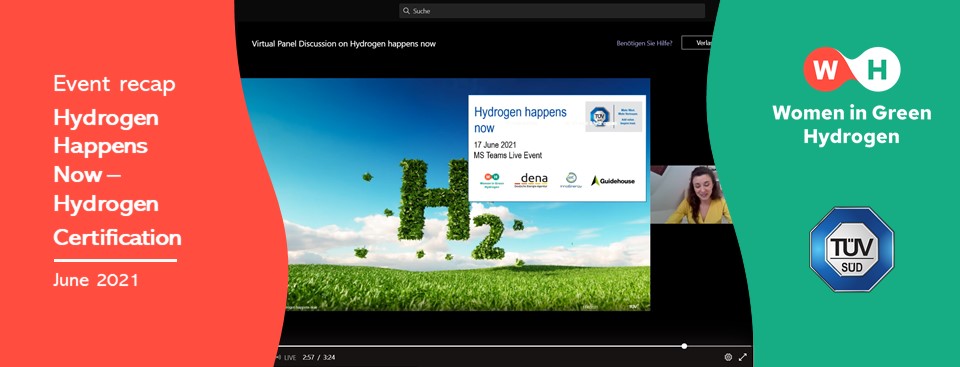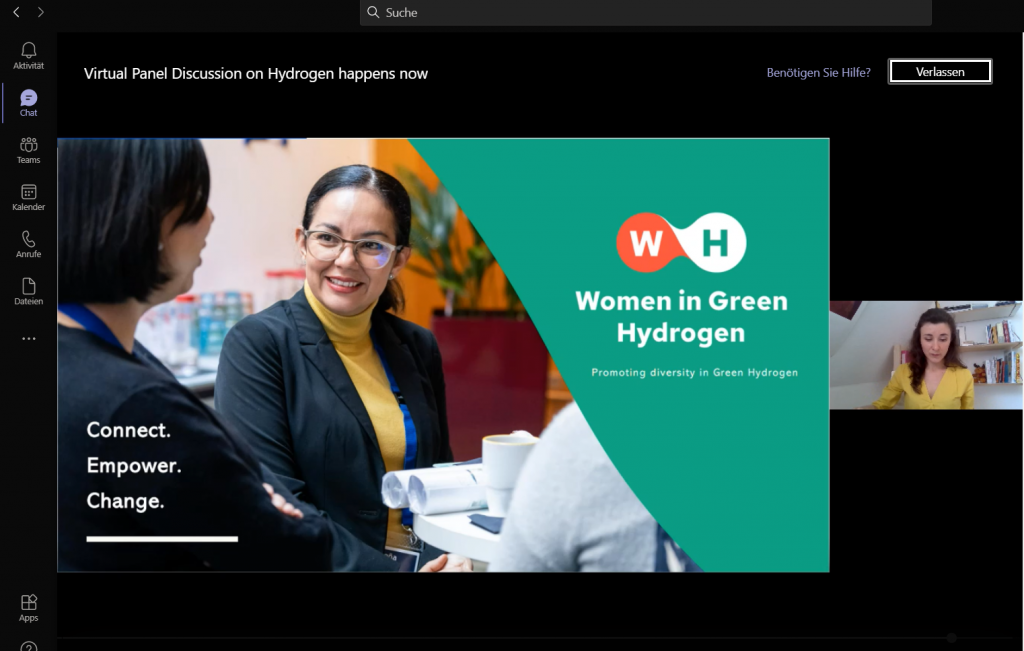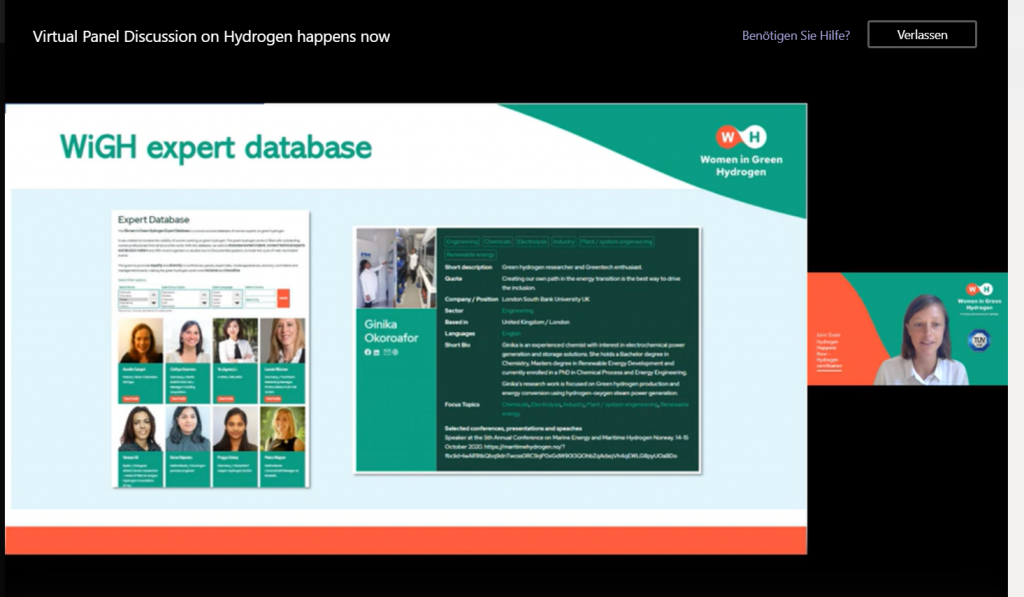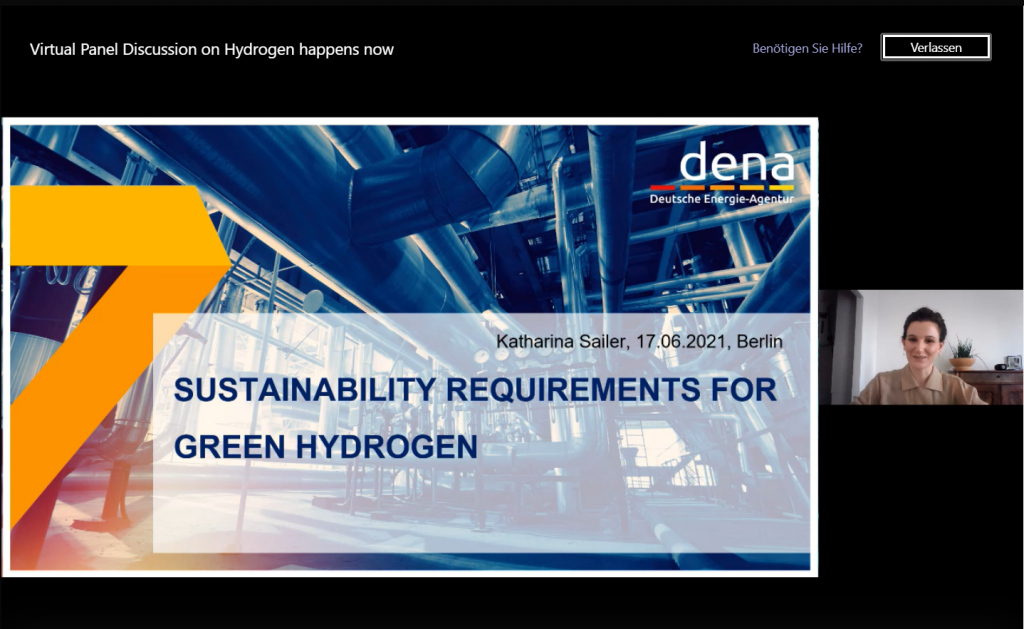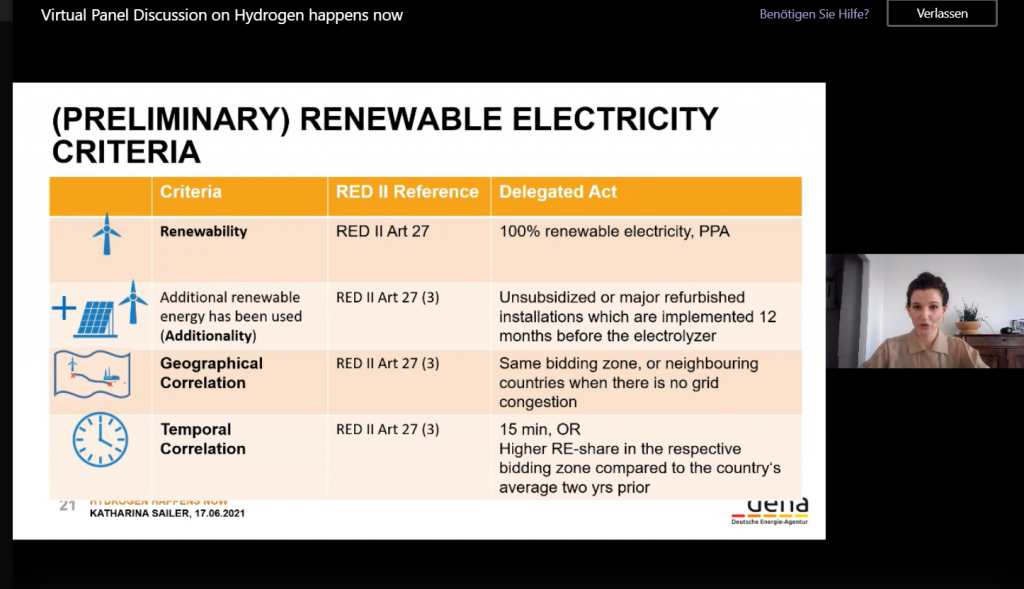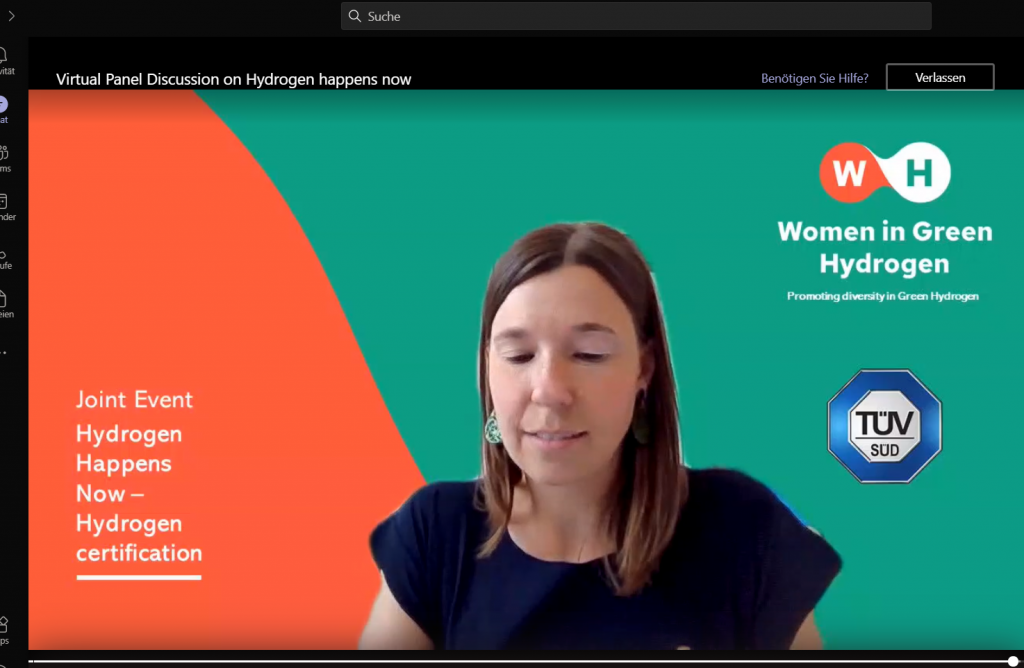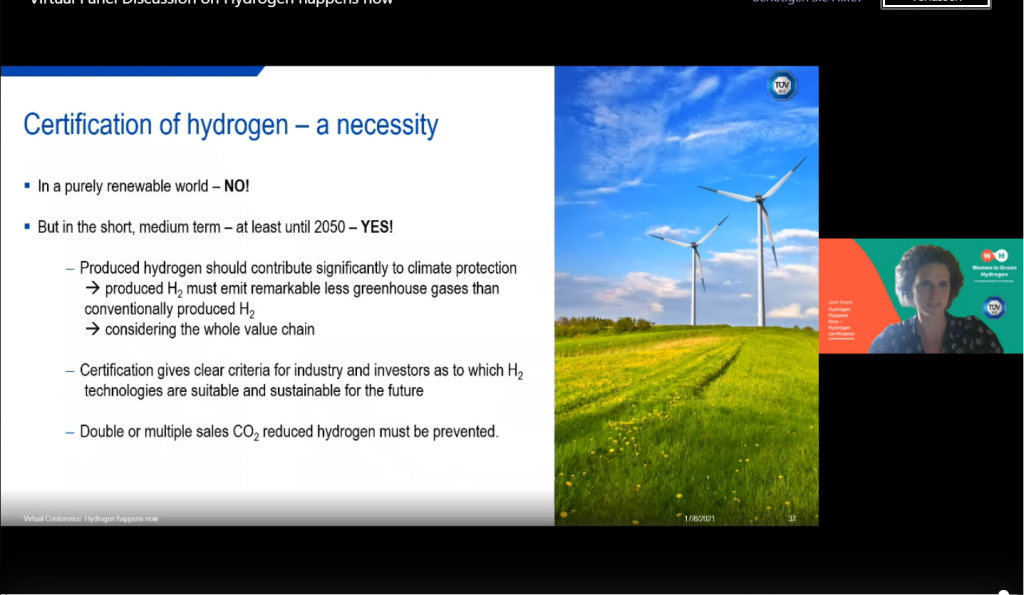On Thursday, 17th June 2021, we hosted the virtual panel discussion “Hydrogen happens now” in collaboration with TÜV SÜD, kickstarting our new series of events deep diving into pressing topics in the green hydrogen world. This time, six women experts discussed hydrogen certification systems in Europe. More than 140 participants joined the event.
After the welcoming words of the moderator and co-founder Jekaterina Boening (Transport & Environment) and a brief presentation of WiGH’s work from our co-founder Charlotte Hussy (GIZ GmbH), Katharina Sailer (Deutsche Energie-Agentur GmbH) opened with her keynote speech, giving a comprehensive overview on the main hydrogen sustainability criteria that are currently the protagonists in the European debate, in particular concerning electricity.
“To protect the electricity sector, it will be fundamental to include additionality among the main certification requirements for electricity used in hydrogen production. This requirement can be fulfilled with unsubsidised plants and major refurbished installations, defined by 30% investment in the construction a new plant.”
For the second keynote, Paula-Maria Auer-Saupe (TÜV SÜD Energietechnik GmbH) presented the current status of hydrogen certification in the European Union and the upcoming developments.
“Certifications are and will be very important because they give the industry and investors clear criteria as to which hydrogen technologies are suitable and sustainable for the future.”
Finally, the two speakers were joined by Carina Krastel (EIT InnoEnergy), Dr. Katharina Kocher (TÜV SÜD Landesgesellschaft Österreich GmbH) and Korinna Jörling (Guidehouse) for a panel discussion on what measures will be needed to implement a coherent EU-wide certification framework. The discussion was very rich and raised many important points, such as the need for clear indications on how to verify the compliance with sustainability criteria.
“In order to start as soon as possible we don’t only need harmonised criteria, but also clear methodologies on how to assess compliance.”
Katharina Sailer, Expert for Renewable Gases and Energy Statistics, Deutsche Energie-Agentur GmbH (dena)
The speakers also stressed the importance of approaches that look at the entirety of value chains, including transport and transformation processes:
“Hydrogen certification should help to compare different solutions, through life-cycle assessment and carbon allocation methodologies, and other certifications must come with it, such as CO2 certifications.”
Carina Krastel, Commercial Director at The European Green Hydrogen Acceleration Center (EGHAC), EIT InnoEnergy
“Emissions from transportation always need to be taken into account, especially when considering the potential for international trade routes.”
Paula Maria Auer Saupe, Business Line Manager – Climate Action Certification, TÜV SÜD Energietechnik GmbH
The role of international collaboration was also highlighted, in particular the need for harmonised integration of different standards at the international level:
“Internationally agreed certification standards should ideally be established, also to avoid market cannibalization of imports.”
Korinna Jörling, Senior Consultant Energy, Guidehouse
“Preserving a certain degree of flexibility in certification will be important to allow a global development of the hydrogen market.”
Dr. Katharina Kocher, Senior Hydrogen Expert, TÜV SÜD Landesgesellschaft Österreich GmbH
Find all presentation slides uploaded here or watch the recording of the entire event:
As WiGH, we were thrilled to see so many people joining the event and actively participating to the discussion with a lot of interesting and stimulating questions. We received truly enthusiastic feedback and we are very much looking forward to hosting the next event! Stay tuned!
